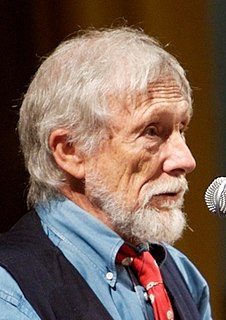See also
| | This article about literature from a country or region is a stub. You can help Wikipedia by expanding it. |
| | This Cook Islands article is a stub. You can help Wikipedia by expanding it. |
Written Cook Islands literature (as distinct from oral literature) has in some ways been a precursor to the development of Pacific Islands literature. Cook Islander Florence Frisbie was one of the Pacific Islands' first writers, publishing her autobiographical story Miss Ulysses of Puka Puka in 1948. Tongareva poet Alistair Te Ariki Campbell published his first collection, Mine Eyes Dazzle, in 1950 (Christchurch: Pegasus Press). In 1960, Cook Islanders Tom Davis and Lydia Davis published Makutu , "perhaps the first novel by South Pacific Island writers".
Pacific Islands literature began to emerge throughout the region in the late 1960s and in the 1970s, largely through the medium of the South Pacific Arts Society (founded at the University of the South Pacific in 1973) and of its literary magazines. Cook Islands poet Makiuti Tongia first published his work in the Society's journal Mana .
Other noted Cook Islands writers include poet Kauraka Kauraka, children's author Teupoko'ina Utanga Morgan, and poet Audrey Brown-Pereira.

The Cook Islands is a self-governing island country in the South Pacific Ocean in free association with New Zealand. It comprises 15 islands whose total land area is 240 square kilometres (93 sq mi). The Cook Islands' Exclusive Economic Zone (EEZ) covers 1,960,027 square kilometres (756,771 sq mi) of ocean.

Gary Snyder is an American man of letters. Perhaps best known as a poet, he is also an essayist, lecturer, and environmental activist with anarchoprimitivist leanings. He has been described as the "poet laureate of Deep Ecology". Snyder is a winner of a Pulitzer Prize for Poetry and the American Book Award. His work, in his various roles, reflects an immersion in both Buddhist spirituality and nature. He has translated literature into English from ancient Chinese and modern Japanese. For many years, Snyder was an academic at the University of California, Davis and for a time served as a member of the California Arts Council.

Australian literature is the written or literary work produced in the area or by the people of the Commonwealth of Australia and its preceding colonies. During its early Western history, Australia was a collection of British colonies; as such, its recognised literary tradition begins with and is linked to the broader tradition of English literature. However, the narrative art of Australian writers has, since 1788, introduced the character of a new continent into literature—exploring such themes as Aboriginality, mateship, egalitarianism, democracy, national identity, migration, Australia's unique location and geography, the complexities of urban living, and "the beauty and the terror" of life in the Australian bush.
Sir Thomas Robert Alexander Harries Davis was a Cook Islands statesman and medical researcher. He served as Prime Minister of the Cook Islands from 1978 to March 1983, and again from November 1983 to July 1987. He also worked as a medical officer, and as a medical researcher for the US Army and NASA. He was a founder of the Cook Islands Voyaging Society and constructed and voyaged in several replica vaka, including Tākitumu and Te Au o Tonga.
Rakahanga-Manihiki is a Cook Islands Maori dialectal variant belonging to the Polynesian language family, spoken by about 2500 people on Rakahanga and Manihiki Islands and another 2500 in other countries, mostly New Zealand and Australia. Wurm and Hattori consider Rakahanga-Manihiki as a distinct language with "limited intelligibility with Rarotongan". According to the New Zealand Maori anthropologist Te Rangi Hīroa who spent a few days on Rakahanga in the years 1920, "the language is a pleasing dialect and has closer affinities with [New Zealand] Maori than with the dialects of Tongareva, Tahiti, and the Cook Islands"
Robert Dean Frisbie was an American writer of travel literature about Polynesia.
Emelihter Kihleng is a Micronesian poet. She is the first ever Micronesian to publish a collection of poetry in the English language, and is one of few published Micronesian poets.
Among the first published works of Fijian literature, in the late 1960s and early 1970s, were Vivekanand Sharma, Raymond Pillai's and Subramani's short stories and Pio Manoa's poetry. The emergence of Fiji's written literature coincides with the country's transition to independence in 1970.
Samoan literature can be divided into oral and written literatures, in the Samoan language and in English or English translation, and is from the Samoa Islands of independent Samoa and American Samoa, and Samoan writers in diaspora. Samoan as a written language emerged after 1830 when Tahitian and English missionaries from the London Missionary Society, working with Samoan chiefly orators, developed a Latin script based Samoan written language. Before this, there were logologo and tatau but no phonetic written form.

Among the first published works of Tongan literature, in the late 1960s and early 1970s, were 'Epeli Hau'ofa's short stories and Konai Helu Thaman's poetry. Hau'ofa's popular collection of short stories Tales of the Tikongs (1973) was followed by a novel, Kisses in the Nederends, 1987, noted for its satirical style. The emergence of Tongan written literature took place in the context of the development of indigenous Pacific Islander literature in the Pacific region as a whole, beginning in the late 1960s.
The literature of Vanuatu, understood in the strict sense of written literature, began in the 1960s.
Solomon Islands literature began in the 1960s.
Ronald Gordon Crocombe was a Professor of Pacific Studies at the University of the South Pacific. His reputation was such that he was described as the "father of Pacific Studies".

The culture of the Cook Islands reflects the traditions of its fifteen islands as a Polynesian island country, spread over 1,800,000 square kilometres (690,000 sq mi) in the South Pacific Ocean. It is in free association with New Zealand. Its traditions are based on the influences of those who settled the islands over several centuries. Polynesian people from Tahiti settled in the Cook Islands in the 6th century. The Portuguese captain, Pedro Fernandes de Queirós, made the first recorded European landing in the islands in the early 17th century, and well over a hundred years later, in the 18th century, the British navigator, Captain James Cook arrived, giving the islands their current name. Missionaries developed a written language, bringing schools and Christianity to the Cook Islands in the early 19th century. Cook Islands Māori, also known as Māori Kūki 'Āirani or Rarotongan, is the country's official language.
Today the term South Seas, or South Sea, is used in several contexts. Most commonly it refers to the portion of the Pacific Ocean south of the equator. In 1513, when Spanish conquistador Vasco Núñez de Balboa coined the term Mar del Sur, or South Sea, the term was applied to the entire area of today's Pacific Ocean. In 1520 Ferdinand Magellan named the same ocean the Pacific Ocean, and over time Magellan's name became dominant. The South Sea term was retained, but was applied only to southern areas of the Pacific.
Dr. Marjorie Tuainekore Tere Crocombe is an author and academic from the Cook Islands. She is the Cook Island's "most venerated living author".

Indigenous Australian literature is the fiction, plays, poems, essays and other works authored by Aboriginal and Torres Strait Islander people of Australia.

Florence Ngatokura "Johnny" Frisbie, also known as Johnny Frisbie Hebenstreit, is a Cook Islands author. Her autobiographical children's novel, Miss Ulysses of Puka-Puka (1948), was the first published literary work by a Pacific Islander woman author.
Makiuti Tongia is a Cook Islands poet, academic, diplomat, and public servant. He is the first Cook Islander published in the Cook Islands, and considered to be a trail-blazer in Cook Islands literature and a key figure in the creation of a Pacific literary tradition.
Myra Lydia Davis (1919–2000) was a writer in the Cook Islands. She is known for writing, alongside her husband Thomas Davis, the 1960 novel Makutu, thought to be "perhaps the first novel by South Pacific Island writers."